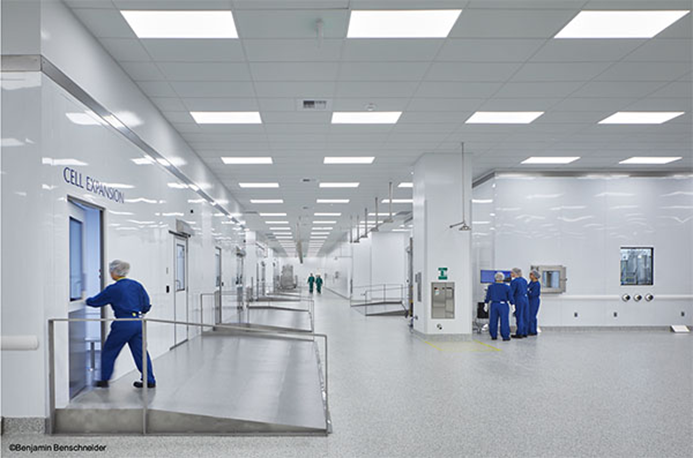Guest blog by Nick Hutchinson, Associate Vice President Business Development, Just - Evotec Biologics

Ballroom J.POD® Redmond, WA. Just – Evotec Biologics
You would be forgiven for thinking that little has changed in biomanufacturing in the past 20 years. The sector is stuck using the same production methods and facility designs that emerged at the turn of the century. These approaches create risks and inefficiencies in the production pipeline, including:
- High manufacturing costs
- Difficulty in adapting to demand
- Expensive and risk-prone commercial development process
A lack of innovation in biomanufacturing is a problem not just for sponsors but also for patients that are desperately waiting for new medicines. The cost of these drug limit global access to biotherapeutics and restricted the impact they could have on populations around the world, particularly in the global south. Even within western markets biologics can be rationed or their use limited on the grounds of costs to healthcare providers.
Radical new approaches to bioproduction are necessary to debottleneck supply chains and ensuring manufacturing does not limit the potential of new biologics. Fortunately, leading technologists in this field are breaking with existing paradigms and demonstrating they can transform productivity, cut timelines and drive down production costs. Inspired by transformations in mature sectors such as the fine chemical and food processing segments they are replacing existing batch production approaches with continuous processing.
Continuous manufacturing eliminates downtime between batches allowing greater efficiency and overall productivity while increased use of automation drives down labour costs and optimises resource utilization. Product quality can be maintained or even improved my real-time monitoring and control of process parameters reducing out of specification events and defects.
Flexible batch sizes are a major benefit of continuous technology enabling simplified scaling and avoiding the need to transfer processes between sites, countries of even continents. Critically continuous platforms make it easier to adapt to changes in demand which many biotech companies find difficult to forecast. These highly intensified process can reduce waste and energy consumption, contributing to more sustainable production practices.
Although many advances in this field are being made by large pharmaceutical companies, a small number of emerging CDMOs such as Just – Evotec Biologics (a wholly-owned subsidiary of Evotec with cGMP facilities in USA and Europe) are ensuring the technology is available to all companies developing biologics allowing them to take advantage of this new era of change in biomanufacturing.
More information on Just-Evotec Biologics: Just - Evotec Biologics- Global Access to Biotherapeutics
Contact: [email protected]
*This is a guest blog post - if you would like to submit a guest blog post, please email [email protected]